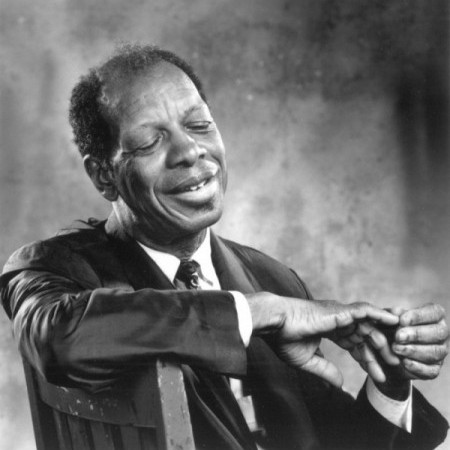
Ornette Coleman (1930–2015)
(Photo: DownBeat Archives/Verve)It’s the same as in the music. You have a thing that you know about, how to get to it, but then you have to find a way ...
... to activate it.
People who are working at a high level, they’re struggling to take what they would like to do and bring it out. I can hear it in your music. It’s also a quality of vulnerability. That’s one of the only exclusively human qualities. You’re not trying to dominate something, as you’ve said.
What’s so free about it, you don’t have to hunt for it, it will appear. It’s not coming there because of you, it’s coming there because it exists. Life itself is dealing with those problems every minute. The quality of knowledge is not class, race or sex. It’s creation. If you have an idea and you put it down and materialize it, that’s as good as you can do.
I’m sitting here speaking to you and I know that if I got my horn out and played it, I would be doing that for the same reason I’m speaking to you: to bring something that has a meaning to the surface. We are all living, breathing, working, supporting each other, but there’s no human being up here and down here. That’s not human.
Doing is believing. That’s one way you know you exist.
That’s such a beautiful statement, and it seems to relate to the long musical relationship with your son, Denardo Coleman, which shocked many listeners when you debuted him as a child. But it showed how people could work together, be a parent, a bandleader, but also just be together.
There’s nothing in the way of it getting better. Nothing! Just you, your heart, your brain and the love that you wish to express because of what it means to you. Doing is believing. It’s the whole thing. Doing doesn’t get destructive, doesn’t have to be above or below, it’s right there.
Like surfing. When a surfer gets right where the wave breaks, everything is suspended. The fact of riding the wave has consequences, comes from someplace, but for that moment everything is halted. Your music can do that to me. On alto saxophone, in your hands, the act of doing is an act of belief.
You couldn’t say it any more clearly, eternally. How you describe things, you describe them in an eternal way, and you don’t have to describe things, you only have to activate it. It has to do with two things: love and life. There’s nothing in between. I’m trying to free myself from surviving, but I’m not sure if I’m going to survive, because I’m not clever enough. Who knows my weaknesses? I don’t even know them. I want to find the idea before it’s thought of, so I can be prepared for it. When I take my instrument, I know it too well; when I get ready to execute, I know the way I have to move my fingers, and I know that too well. Because of that, I’m not sure I want to do it that way. I’m only trying to make contact with life. We can make contact with life. It exists.
Was that behind your choice to move to violin and trumpet, instruments you didn’t have training on?
Those things have another way of adding to what the idea could replicate. I’m glad you brought that up. Suppose you couldn’t read or write, but you could pick up a horn and play everything anyone has ever heard? That can exist. That does exist. Trust me! Life doesn’t send you any bills.
So, according to life, you can pick up an instrument and play it ...
...instantly, as if you’ve been playing all your life.
You don’t have to play it according to all sorts of ...
... rules and conventions. The saddest thing in the whole world is when a human being makes another human being feel less than they are. DB
This story also appears in Microgroove: Forays into Other Music (Duke University Press). For more information on John Corbett’s work, visit his website.